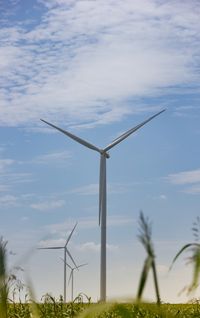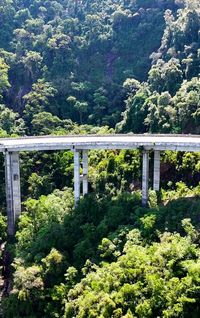The good ship project finance has shown impressive credit strengths up until now. Up until now? Has the tide turned? There have been, to put it mildly, some interesting restructurings over the past year or so that have tested the model. Expect more as project finance moves from core to non-core and then to infinity and beyond. But the underlying credit quality remains – raising debt on the back of cashflows with some security held over the asset financed.
International security was not enforced on the Ambatovy nickel mine project in Madagascar when it was project financed back in 2007 in a US$2.1bn deal. There have been some dramatic developments in the project finance sector in the post Covid era but perhaps none as dramatic as this.
There was local security available with litigation if need be in the local courts. That said the eventual outcome of the second restructuring, yes second, which has just been completed would probably have been little different with international security in place although it could have made the lenders' case easier.
Simply put the global nickel market has tanked as Indonesia has increased production to supply more than half of the world's output. Producers elsewhere have shut down. The plus point of the restructuring is the mine remains open. It still provides 10,000 local jobs.
But the lenders in the US$842m senior tranche, which was already written down to 19 cents in the first restructuring in 2021, have got back just US$45m plus costs and an upside share. The return for those in the US$818m recovery financing, mainly development finance institutions, which remained whole during the first restructuring, got 0.05%. Oops.
The sponsors Sumitomo and South Korean state backed company KOMIR forced through the restructuring via the UK restructuring plan process, similar to the US Chapter 11, which allowed them to overrule dissenting creditors.
The UK restructuring plan allows a cross-class cramdown of dissenting classes of creditors that vote against the plan. In this case South Korea's state owned export credit agency Kexim voted against the deal despite KOMIR being the sponsor. African Development Bank abstained.
The original US$2.1bn package from 2007 involved JBIC providing US$700m and Kexim US$650m. These tranches included a US$405m 17-year commercial bank loan led by MUFG and SMBC. The EIB and Export Development Canada provided US$300m each with US$150m from the African Development Bank. The development finance institution lenders therefore took the main hit. Sumitomo wrote off US$583.72m on its 54.2% stake.
The DFI lenders are most exposed on the Northvolt gigafactory deal in Sweden, which has just started its Chapter 11 process. The company raised US$1.6bn in project debt in 2020 with just a small amount of uncovered debt, a US$50m term loan and a US$110m working capital facility.
Euler Hermes, BPI France and Nexi were the main funders. A US$5bn expansion financing had more uncovered debt but was never drawn down. As for the US$10bn equity, who knows what will happen to that now?
Have the DFIs suddenly become the major risk takers in project finance? Clearly the DFIs are there to back challenging deals in challenging sectors or locations but they usually can call on government-to-government protections. And normally the DFI lenders get their funds back first, indeed JBIC and IFC insist on this point, which has led to interesting stand-offs between the two when they were on deals together.
The point about Ambatovy and Northvolt is that both are fully merchant risk deals. There was no sovereign or sovereign-backed contract to fall back on. The Swedish government was asked to help Northvolt but refused.
The Yunlin offshore wind restructuring in Taiwan from last year had a happier outcome with the ECA and bank lenders getting 90% to 100% of their debt. But a new US$500m super-senior loan facility in NT$ equivalent funding and US$1.2bn in new NT$ equity was required – a total of US$1.7bn in new cash into the project. Not pleasant.
The scheme is backed by a government-linked power purchase agreement, which was tweaked under the restructuring agreed in the UK High Court under a restructuring plan approach.
The MGT Teesside biomass scheme in the UK is backed by a government linked PPA as well. Project sponsors Macquarie and PKA have recently raised a new £85m super-senior credit facility financing in the scheme's second restructuring as the scheme struggles to full commissioning.
Last summer, the sponsors raised £80m from shareholders and some lenders to take the project to final commissioning, with £53m coming from shareholders and £27m from debt providers. One creditor attended the treatment of plan meetings under the English Part 26A Restructuring Plan. Court documents said the hearing was attended by South Korea's K-Sure, Santander and ICO.










